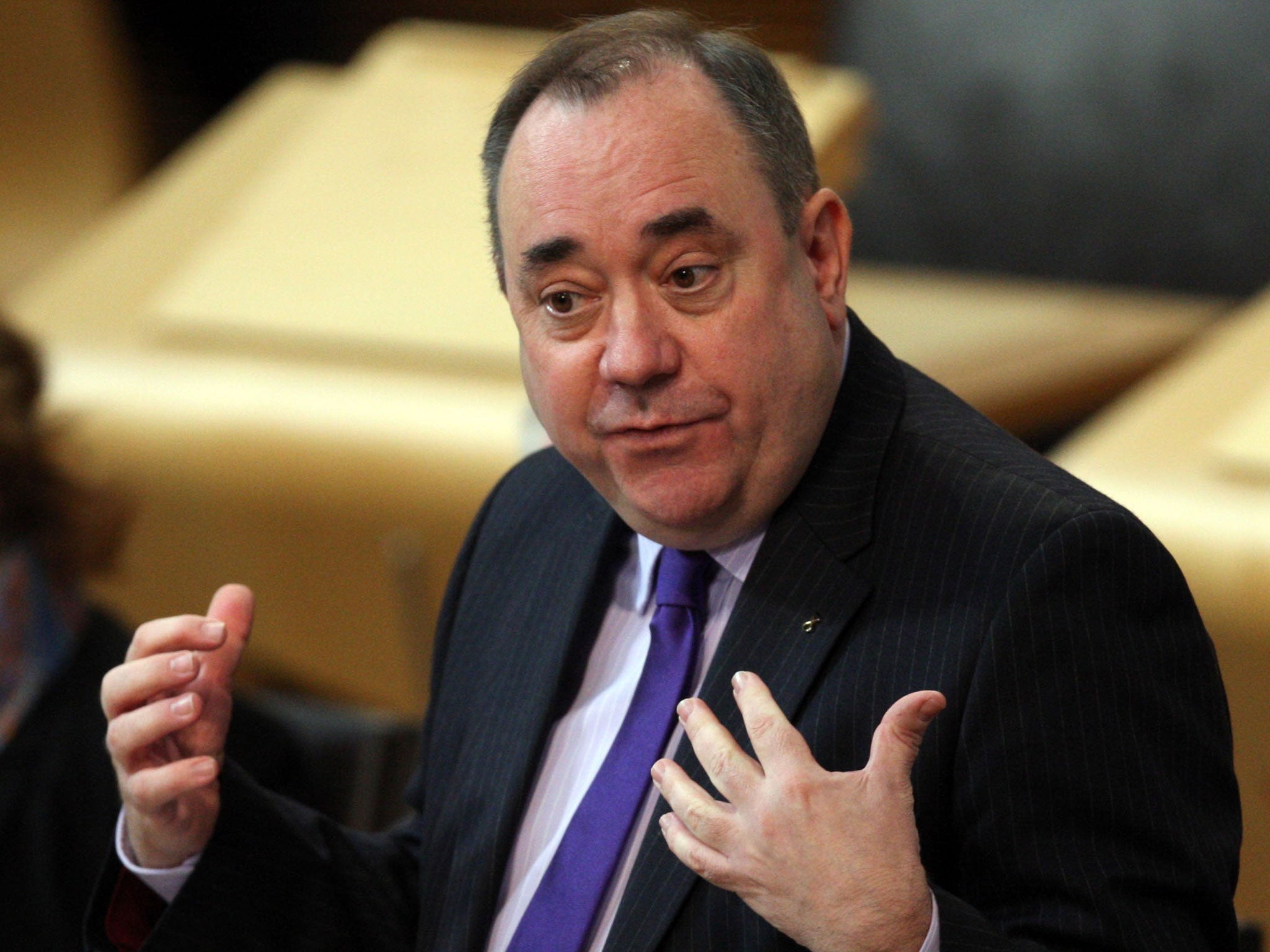EU tells Scotland: independence would force you out
Supporters of Union seize on membership question, which is likely to be a key issue in campaign

Your support helps us to tell the story
From reproductive rights to climate change to Big Tech, The Independent is on the ground when the story is developing. Whether it's investigating the financials of Elon Musk's pro-Trump PAC or producing our latest documentary, 'The A Word', which shines a light on the American women fighting for reproductive rights, we know how important it is to parse out the facts from the messaging.
At such a critical moment in US history, we need reporters on the ground. Your donation allows us to keep sending journalists to speak to both sides of the story.
The Independent is trusted by Americans across the entire political spectrum. And unlike many other quality news outlets, we choose not to lock Americans out of our reporting and analysis with paywalls. We believe quality journalism should be available to everyone, paid for by those who can afford it.
Your support makes all the difference.Alex Salmond, the Scottish First Minister, has suffered a severe setback after it emerged Scotland would have to apply to join the European Union if it votes to leave the UK in the 2014 independence referendum.
The European Commission cast serious doubts on Mr Salmond’s repeated insistence that EU membership could be smoothly transferred to the newly independent nation.
A letter prepared by the Commission for a House of Lords committee concluded that independence “would not have a neutral impact”. It added: “If a territory of a member state ceases to be part of that member state because it has become an independent state then the treaties would cease to apply to that territory.”
The Commission explained that Scotland would be treated like any other new applicant to join the EU – and would have to gain the backing of all existing member states.
Although the letter does not spell out the point, it is likely that countries such as Spain, which has vigorous nationalist movements in Catalonia and the Basque region, would be hostile to a Scottish application.
John Swinney, the Scottish Government’s Finance Secretary, disputed the conclusion, pointing out that the country is already within the EU. It would not therefore be applying to join, but discussing the terms of its continuing membership, he argued. “We will be negotiating our arrangements and our membership from within the European Union, which is the key point of distinction,” he said.
But the Commission’s conclusion was seized upon by prominent supporters of the Union – and Scotland’s status within the EU is certain to become a key feature of the anti-independence campaign.
The Scottish Secretary, Michael Moore, claimed an independent Scotland would lack weight in the negotiations within the EU.
He queried its ability to obtain an opt-out from joining the euro and to sort out its position over border controls, adding: “The Scottish Government cannot wish these problems away.”
In September, Mr Salmond argued there was a difference between Scotland which had “40 years of membership of the European Union” and a “country which is trying to join the European Union for the first time, like Turkey”.
An independent Scotland “quite clearly will remain part of the European Union and negotiations will take place from within that context,” he said.
Join our commenting forum
Join thought-provoking conversations, follow other Independent readers and see their replies
Comments